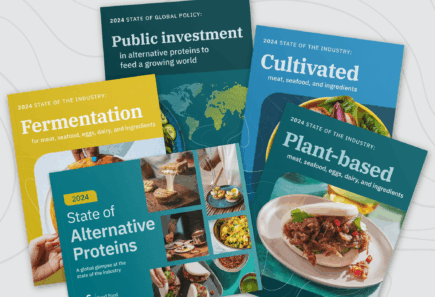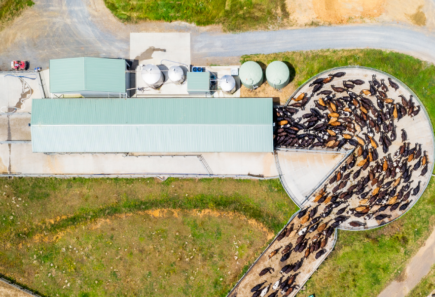
Explore the 2024 State of the Industry reports
Our State of the Industry reports are an annual deep dive into the global alt protein sector. The latest edition of the series compiles business developments, policy updates, and scientific breakthroughs from 2024 that are advancing the field and shaping a world where alternative proteins are no longer alternative.








